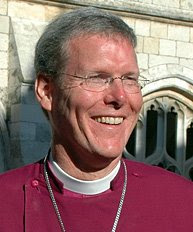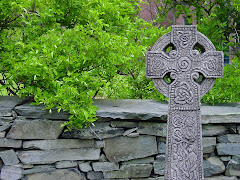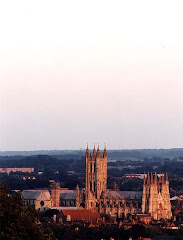Having been here for a week already, it is surprising to realize that today is only the second full day of the “working” schedule of the Lambeth Conference—a schedule that has been so filled with meetings and gatherings that there has been almost no free time in which write updates to this blog. For that I apologize. I will continue to write more, and I encourage you simply to keep checking in.
Sunday morning began with the celebration of the Eucharist at Canterbury Cathedral. The mere fact of a service comprised of people from all continents (bishops, spouses, ecumenical representatives, Lambeth staff, and more) participating in worship in many languages, gathering around one and the same altar, and celebrating the Eucharist was in itself the incarnation of the unity that is already ours in Christ.
Even so, I continue to be amazed by the complex of challenges we all face as we work to live into the fullness of that gift. Theological issues aside, the practical realities are staggering. The conference employs, for example, fifty-seven interpreters just to bridge the language barrier alone. Beyond language there remains the vast differences in culture and political contexts among us, let alone the community histories and personal experiences that we bring with us.
It makes for conversations that are both challenging and wonderful all at the same time.
Yesterday morning I sat with a group of four bishops with the purpose of discussing what it means to be a bishop. That discussion, however, needed to take place in four languages—English, Spanish, Burmese, and an Indian dialect. Across those linguistic divides and out of those radically different cultures, our task was to write one sentence that accurately described our understanding of what it means to be a bishop in Anglicanism. Remarkably, with one bishop having served only nine months and another having been ordained bishop for nearly thirty years, we discovered a surprising convergence and easy agreement.
Today, however, I worked among a group of some eight bishops—English, Australian, Burmese, Indian, South American, Kenyan and American—to discuss evangelism, service, and prophetic witness. The Americans and English, on the one hand, expressed the need to make service to the poor more explicitly Christian as a way of bearing witness more directly to the gospel. The Burmese, Indians, and Kenyan, on the other hand, expressed their need to bear witness implicitly—their good works alone speaking for themselves—some of them living in an environment in which either to mention the name of Jesus or to live openly as a Christian is to risk one’s life. About the need for effective evangelism, in other words, there was no disagreement, but regarding the methodology for undertaking that part of our mission there was considerable divergence—all of it shaped by our particular contexts.
This is, of course, one of the hallmarks of Anglicanism.
Still it is all a reminder of how difficult it is, and can be, to work through the many issues that are before us. If the layers of translation needed for effective cross-cultural, missional partnerships on such basic matters of ministry are so plentiful, how much more so when it comes to the more controversial issues before us?
Which puts me in mind of the Pentecost event: not a moment in which a disparate body of people are made into a community, but an epiphany in which a divided body of people discover the deepest reality of their lives—that across all the barriers that divide them, they are already more deeply related than they have imagined, that they are already one, that it is not of their own doing but is instead a divine gift.
It is just that discovery that we all need—the consequence of simply sitting together, staying together, praying together. Could that be what the Spanish poet, Antonio Machado, meant when he wrote: “Caminante no hay camino, se hace camino al andar.” (“Walker there is no road, the road is made by walking it.”) ?
Tuesday, July 22, 2008
Subscribe to:
Post Comments (Atom)



1 comment:
I love this description and imagery of Pentecost. This makes me wonder...can we really choose not to be in communion with our fellow Christians? If being one is indeed God's doing and not our own, then isn't being "out of communion" being out of oneness with God? Why would anyone who claims to be a Christian wish to choose this?
Post a Comment